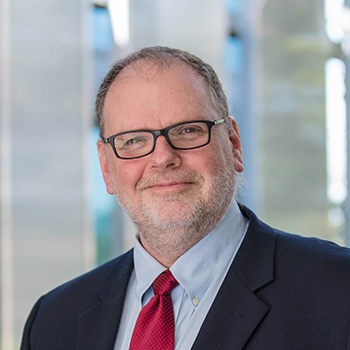Director's Welcome - December 2023
 Welcome everyone to the last SMI external e-news edition for the year.
Welcome everyone to the last SMI external e-news edition for the year.
2023 has been both a successful and challenging year for the SMI.
Our Centres and Programs have continued to make inroads in our chosen goal to understand and optimise the role of resources in future global sustainability. At the same time UQ and many other Australian universities have encountered the need to make financial adjustments to adapt to the current environment, and the SMI and its staff have responded to UQ’s call to play our part in the Project 2025 financial efficiency program.
On a global scale, the world continues to experience disruptions that are feeding into the resource industry making it even harder for the world to achieve its decarbonisation goals. In addition, some of our industry partners are at a point in the “resource clock” characterised by mergers and a focus on short term value. We have been able to thrive in these conditions so far, and the outlook for 2024 looks positive.
SMI continued to make good progress on many of its existing initiatives over the course of 2023. Our new strategic program - Resourcing Decarbonisation - was inaugurated and is well underway in its aim to understand and mitigate the challenges related to producing the resources needed to meet decarbonisation goals. The program has received strategic support from UQ and has already met its targeted external financial support for its 3 years duration.
2023 also marks the first year of operation of the Resource Technology and Critical Minerals Trailblazer, a government, industry and university supported program aimed at improving our performance in the commercialisation of our research, and the commercial engagement of our people. The first year has seen us grow our collaboration: with industry partners; across the SMI and with UQ Schools of Chemical Engineering and Mechanical and Mining Engineering; as well as deepening our collaboration with Curtin and James Cook Universities.
Of course, the World Mining Congress in Brisbane in July was a huge highlight with many of our staff convening the conference themes and a large number delivered presentations and posters. It was a great opportunity for the SMI to shine on the world mining stage, and we were successful in seizing it.
The SMI’s many other consortia and long-term alliances continued strongly in 2023, and are too numerous to mention here. However, I did want to highlight some projects.
We continued a strong collaborative project with the Ngadju Conservation Aboriginal Corporation looking at the effects of mining on their traditional lands. This project has been a great example of a true collaboration with an Indigenous partner. Thanks to $100,000 in strategic funding from UQ the collaboration will continue to grow in 2024.
We finished the 3-year Mitsubishi-sponsored water project led by SMI-ICE-Chile which has resulted in important insights and tools to improve water distribution in a part of the world that is ground zero for the minerals we will need for the energy transition.
We also reached the halfway point of the Australian Research Council Centre of Excellence for Eco-Efficient Beneficiation of Minerals, which is a collaboration of university and industry partners focused on new ways to separate minerals and metals using less water, less energy and with less waste. The Centre has produced great benefits for both staff and HDR participants.
We successfully established new long-term initiatives, including strong progress towards finalising a new alliance with the Queensland Department of Resources focused on helping the Queensland exploration and resource industry develop sustainable approaches for critical minerals production, achieve targeted ESG excellence, and embed circular economy practices and thinking into industry.
The SMI also played a key role in the successful attraction of National Collaborative Research Infrastructure Strategy (NCRIS) funding for a UQ Central Research Platform for drone technology that will serve as a resource for the Australian research sector.
There were plenty of individual achievements as well, with 7 HDR researchers graduating over the course of the year; six of our staff achieved promotion; and another successful Memorial Day acknowledged the worthy winners of the Ian Morley Prize, the Dee Bradshaw Scholarship, the Bill Whiten Prize, and the Dan Alexander Prize.
A key highlight was the naming of SMI alumnus Dr Raijeli Taga as UQ Alumnus of the Year in recognition of her contribution to Pacific Island development, sustainability, gender equality, environmental health and work with Indigenous communities.
No doubt there will be many highlights for the SMI in 2024, but I did want to mention that we will be hosting the Australian Mine Waste Symposium on the 6 - 7 February next year, and this will be a conference with wide industry and research participation addressing this timely and important topic.
As the holiday season approaches, I wish you and your families a happy and safe new year.
Enjoy the newsletter,

